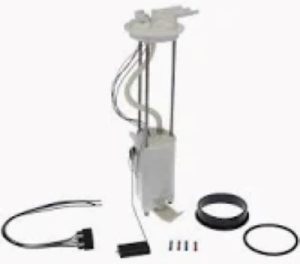In the fuel injection process, fuel pumps are also essential components, which provide a constant pressure to ensure proper fuel injection timing and atomization. Like fuel injectors mostly need constant high-pressure supply fed to their needles, most fuel-injected engines need fuel high-pressure to be between 40 even to 70 PSI inside the flowing system of fuel injectors they use and their electronic controller. If this pressure isn't met where the fuel pump fails, fuel injectors cannot maintain the proper air-to-fuel ratio and incomplete combustion often occurs, sapping power and dropping fuel economy by 10-15% in exchange.
Fuel demand is substantially higher in performance applications, especially during hard acceleration or at high RPM. Injectors can have a very good supply of fuel under these operating conditions if the fuel pumps themselves are rated for flows in excess of 250 liters per hour (LPH), and then we have power along with response in return! High-output fuel pumps are beneficial for turbocharged or supercharged engines with sudden increased fuel demand, as they ensure sufficient fuel delivery during periods of accelerated air intake to help avoid engine knock issues associated with lean mixture conditions, which can harm a high-performance automobile's smooth operation.

In electronic fuel injection (EFI) systems, injection timing is controlled by the engine control unit (ECU), and the ECU uses accurate positioning of the fuel. A pump that is reliable and consistently delivers fuel to the ECU at the needed pressure allows the ECU to optimize performance. Automotive Guru Ed China says, The fuel pump is the heart of the fuel system; without it, there is no fuel injection. The significance of this part is clear since even small variations in pressure can cause misfires, rough idling, and acceleration blemishes.
Because fuel is thicker when it is colder, it takes more energy to pump fuel in cold weather, which puts a greater strain on the fuel pumps. Some injectors need the adequate fuel to get through any condition to run at full power, and using quality fuel pumps that provide a constant performance in any temperature is one way to make sure injectors get the fuel they need. Industry studies reveal that fuel pumps that are optimized for ambient temperature won’t fail due to temperature variation–with an increase of reliability up to 20%.
Opting for a high quality Fuel Pump avoids fluctuations and irregularities in fuel pressure, resulting in improved operation of the fuel injectors, enhanced fuel economy, lower emissions and smooth engine performance.
